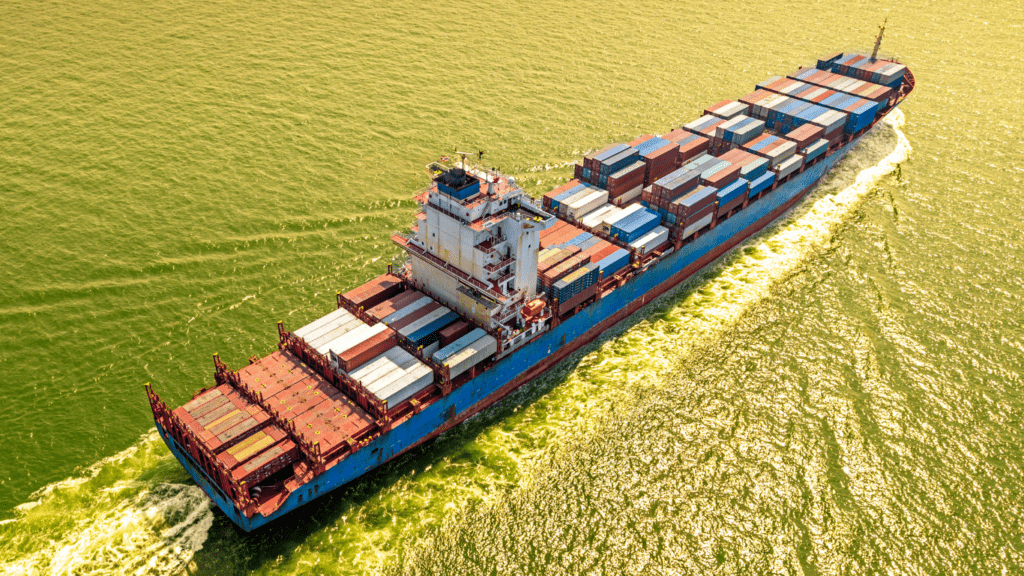Overview Of International Trade Regulations
International trade regulations govern how businesses engage in global commerce. These rules ensure legal and fair trade across borders. They cover various areas, including tariffs, customs procedures, trade agreements, and compliance standards.
- Tariffs And Duties
Governments impose tariffs and duties on imported goods. These taxes aim to protect domestic industries and generate revenue. For example, the US sets different tariff rates depending on the product category and origin country. It’s essential to understand these rates to avoid unexpected costs.
- Customs Procedures
Customs procedures are mandatory for goods entering or leaving a country. They involve documentation, inspections, and potential delays. Businesses must adhere to each country’s customs regulations to ensure smooth operations. For instance, US Customs and Border Protection (CBP) requires detailed shipment information for clearance.
- Trade Agreements
Trade agreements are treaties between countries to facilitate commerce. These agreements can reduce or eliminate tariffs, making it cheaper to do business internationally. The North American Free Trade Agreement (NAFTA) is an example that benefited US, Canada, and Mexico by lowering trade barriers.
- Compliance Standards
Compliance with international standards is non-negotiable for businesses. These standards include quality, safety, and environmental regulations. Organizations like the International Organization for Standardization (ISO) set these criteria to ensure consistent product quality worldwide.
Understanding these aspects of international trade regulations helps businesses navigate global markets effectively. By staying informed and compliant, companies can mitigate risks and capitalize on international opportunities.
Key Components Of Trade Regulations
Understanding key components of trade regulations is essential for businesses engaging in international commerce. These elements include tariffs, licenses, and treaties, among others.
Tariffs And Duties
Tariffs and duties are taxes imposed by governments on imported goods. These taxes protect domestic industries and generate revenue. For instance, the United States imposes tariffs on steel and aluminum imports. Knowledge of tariff rates helps businesses avoid unexpected costs and plan their pricing strategies. Duties vary based on product type, origin country, and trade agreements.
Import And Export Licenses
Import and export licenses are permits required for shipping goods across borders. Countries often require these licenses to monitor and regulate trade. For example, the Bureau of Industry and Security (BIS) in the U.S. issues export licenses for certain controlled goods. Businesses must research and obtain the necessary licenses to ensure compliance and avoid legal penalties. License requirements depend on the type of goods, destination, and trade policies.
Trade Agreements And Treaties
Trade agreements and treaties facilitate commerce by reducing or eliminating tariffs and harmonizing regulations between countries. Examples include the North American Free Trade Agreement (NAFTA) and the Comprehensive and Progressive Agreement for Trans-Pacific Partnership (CPTPP). These agreements create favorable trade conditions, making it easier for businesses to enter new markets. Understanding the terms of these agreements helps businesses leverage reduced barriers and expand their global reach.
Each of these components plays a crucial role in shaping the landscape of international trade, ensuring that businesses operate within legal frameworks and benefit from existing commercial opportunities.
Navigating Regulatory Compliance
Properly navigating regulatory compliance ensures smooth international trade operations while mitigating legal risks. Here, I’ll break down key elements to streamline this process.
Documentation And Filing Requirements
Businesses must adhere to specific documentation and filing requirements when engaging in international trade. Essential documents include:
- commercial invoices
- packing lists
- certificates of origin
For example, a commercial invoice details the goods’ value and terms of sale, crucial for customs clearance and duty calculation. Electronic filing systems like the Automated Commercial Environment (ACE) in the U.S. simplify submission processes. I ensure timely and accurate filings, avoiding delays and potential fines. Each country may have unique requirements, so I research thoroughly to meet all criteria.
Standards And Certifications
Compliance with international standards ensures products meet quality and safety benchmarks. Organizations like the International Organization for Standardization (ISO) set these standards to promote consistency and reliability. ISO 9001, for instance, outlines criteria for quality management systems, beneficial for business credibility.
Certifications validate adherence to these standards. The CE marking in the European Union signifies that a product meets essential safety, health, and environmental protection requirements. Similarly, obtaining certifications for specific markets, like the CCC mark in China, facilitates smoother market entry and customer trust.
By understanding and meeting documentation and certification necessities, businesses can efficiently navigate regulatory landscapes and achieve international success.
Impact Of Trade Regulations On Business Operations

Trade regulations significantly influence business operations by affecting costs, market access, and competitiveness.
Cost Implications
Trade regulations directly impact expenses. Import tariffs, duties, and compliance costs can increase the total cost of goods. For instance, specific tariffs may be levied based on the Harmonized System (HS) codes of products, which classify goods for customs. These added costs can inflate product prices, complicating pricing strategies. Additionally, compliance with customs procedures requires resources for documentation, inspections, and potential delays, making logistics more expensive. Non-compliance, on the other hand, can result in fines, penalties, and even bans, adding unforeseen financial burdens.
Competitive Advantages
Properly navigating trade regulations can offer competitive advantages. Trade agreements like the Comprehensive Economic and Trade Agreement (CETA) provide businesses reduced tariffs and easier access to member markets. Compliance with international standards, such as ISO 14001 for environmental management, not only meets legal requirements but also signals to customers that a business maintains high-quality and safety standards. This can enhance brand reputation and customer trust, leading to increased market share. Furthermore, businesses adept at managing trade regulations can enter new markets more swiftly and efficiently than competitors, gaining an upper hand.
Strategies For Effective Compliance
To navigate international trade regulations successfully, businesses must adopt effective compliance strategies. Leveraging technology and building a robust compliance team are critical steps in this process.
Leveraging Technology
Technology streamlines compliance with international trade regulations. Implementing specialized software helps monitor regulatory changes and ensure adherence to trade laws. For example, Global Trade Management (GTM) systems automate customs documentation, tariff calculations, and risk assessments. These systems enhance accuracy and reduce manual errors.
Another essential tool is the use of Electronic Data Interchange (EDI). EDI facilitates the electronic exchange of business documents like invoices and shipping notices between trading partners. This ensures timely communication and compliance with international standards.
Blockchain technology offers secure and transparent record-keeping for international transactions. By verifying the authenticity of goods, blockchain minimizes the risk of fraud and enhances supply chain integrity.
Building A Compliance Team
A dedicated compliance team ensures that a business adheres to international trade regulations. This team typically includes professionals with expertise in customs regulations, legal requirements, and supply chain management.
Hiring a compliance officer is crucial. This individual oversees regulatory compliance and stays updated with global trade laws. They also conduct internal audits to ensure the company follows all relevant regulations.
Training programs for staff members are necessary. These programs cover the basics of international trade regulations, documentation requirements, and the importance of compliance. Continuous education helps employees stay informed about changes in trade regulations.
Collaborating with external consultants or legal advisors enhances the compliance team’s capabilities. These experts provide specialized knowledge on complex regulations and offer advice on best practices for maintaining compliance.
By leveraging technology and building a skilled compliance team, businesses can effectively navigate the complexities of international trade regulations, ensuring smooth operations and minimizing risks.
Future Trends In International Trade Regulations
The landscape of international trade regulations is evolving. Emerging trends indicate significant shifts that businesses must monitor closely to stay competitive. These trends include digital trade agreements, environmental sustainability standards, and geopolitical factors influencing trade policies.
Digital Trade Agreements
Digital trade agreements are becoming more prevalent. Governments and international bodies are formulating policies to support the growth of e-commerce. For example, the US-Mexico-Canada Agreement (USMCA) includes provisions that facilitate digital trade by protecting cross-border data flows and prohibiting data localization requirements. Companies engaged in digital trade need to comply with these new regulations to expand globally.
Environmental Sustainability Standards
Environmental considerations are reshaping trade regulations. Countries are increasingly integrating sustainability criteria into trade agreements to address climate change. The European Green Deal, for example, aims to make the European economy sustainable by turning climate and environmental challenges into opportunities. Businesses must align with these standards to avoid penalties and ensure market access.
Geopolitical Factors Influencing Trade Policies
Geopolitical events continue to impact international trade regulations. Trade wars, economic sanctions, and political alliances influence rules governing cross-border commerce. The US-China trade tensions have led to increased tariffs on various goods, affecting global supply chains. Businesses should stay informed and adapt strategies to mitigate the impact of such geopolitical shifts.
By staying abreast of these trends, businesses can better navigate the complexities of international trade regulations. Embracing digital trade, committing to environmental standards, and understanding geopolitical dynamics are crucial for maintaining compliance and seizing new opportunities in the global market.



